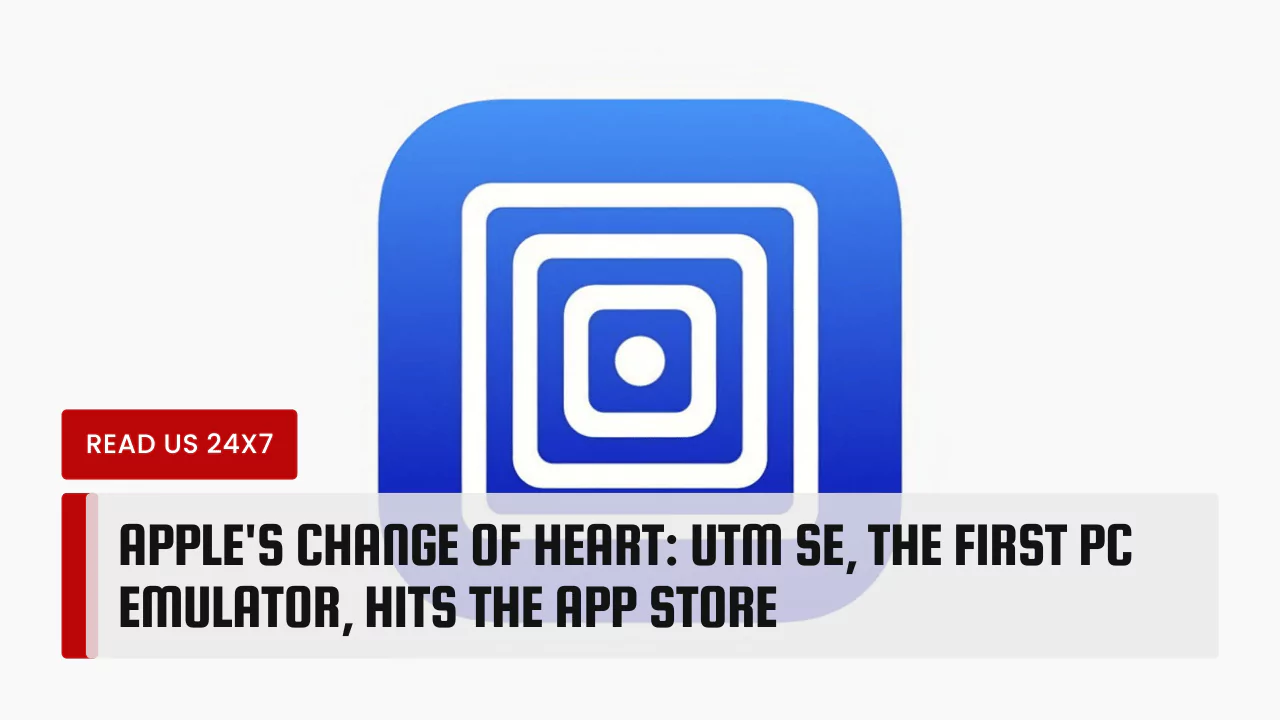The answer to the long-awaited question is finally here: Apple has approved the first PC emulator, UTM SE, for iPhone and iPad, allowing users to run Windows, Mac OS 9, and Linux on their mobile devices. Yes, you read that correctly – Apple has reversed its decision and now allows PC emulators on the App Store.
Launch of the First PC Emulator for iPhone and iPad on the App Store
UTM SE, the groundbreaking emulator, has finally made its way to the App Store, marking a significant turning point in the world of mobile technology. After an initial rejection in June, Apple has reversed its decision and now allows users to download and install the emulator on their iPhone and iPad. The app can be downloaded from the App Store and is also available via AltStore PAL in the European Union.
Exploring UTM SE: A New PC Emulator for iOS Devices
UTM SE is a powerful PC emulator that allows users to run multiple operating systems on their iOS devices, including Windows, Mac OS 9, and Linux. The emulator is compatible with various architectures, including x86, PPC, and RISC-V, and supports both VGA mode for graphics and terminal mode for text-only operating systems. Users can run pre-built machines or create their own configuration from scratch.
Compatibility with Windows, Mac OS 9, and Linux
UTM SE supports multiple operating systems, making it a versatile tool for users who want to run classic software and old-school games on their iOS devices. The emulator is compatible with Windows, Mac OS 9, and Linux, providing users with a range of options for their emulation needs.
Apple’s Approval Process and Initial Rejection
Apple’s approval process for PC emulators has been a long and arduous one. The company initially rejected UTM SE in June, stating that only “retro game” emulators were allowed, not PC emulators. However, Apple’s decision was met with widespread backlash, and the European Commission threatened to take action. The company’s change of heart has led to the approval of UTM SE, and it is now available on the App Store.
Analyzing the Controversy of PC Emulators in the iOS Ecosystem
The controversy surrounding PC emulators on iOS is a long-standing one. Apple has historically been stringent in its approval process, rejecting many PC emulators in the past. However, the rise of competing game streaming services has put pressure on the company to reconsider its stance. In recent years, Apple has relaxed its stance on game emulators, allowing them to be available on the App Store. However, the company’s approval of UTM SE marks a significant turning point in the controversy surrounding PC emulators.
History of Apple’s Rejections for PC Emulators
Apple’s rejection of PC emulators has a long history. The company has typically rejected apps that allow users to run unauthorized software on their devices. However, the rise of competing game streaming services has put pressure on the company to reconsider its stance. In recent years, Apple has relaxed its stance on game emulators, allowing them to be available on the App Store.
Influence of Competing Game Streaming Services
Competing game streaming services, such as Google Stadia and Microsoft xCloud, have had a significant impact on Apple’s approval of PC emulators. These services allow users to stream games from the cloud, bypassing the need for emulators on their devices. The rise of these services has put pressure on Apple to reconsider its stance on PC emulators, allowing users to access a wider range of games and software.
The Impact of Apple’s Approval of UTM SE
The approval of UTM SE has significant implications for the iOS ecosystem. The emulator allows users to run multiple operating systems on their devices, providing them with a range of options for their emulation needs. The emulator’s compatibility with Windows, Mac OS 9, and Linux makes it a versatile tool for users who want to run classic software and old-school games.
New Capabilities for iPhone and iPad
The approval of UTM SE provides new capabilities for iPhone and iPad users. Users can now run multiple operating systems on their devices, providing them with a range of options for their emulation needs. The emulator’s compatibility with various architectures and operating systems makes it a versatile tool for users who want to run classic software and old-school games.
Effects on the Gaming Industry
The approval of UTM SE has significant implications for the gaming industry. The emulator’s ability to run multiple operating systems and architectures makes it a powerful tool for gamers. The emulator’s compatibility with classic software and old-school games means that users can now access a wider range of games and software.
Legal Considerations in India
The approval of UTM SE raises legal considerations in India. The emulator’s ability to run multiple operating systems and architectures raises questions about the legal implications of running unauthorized software on iOS devices. The Indian government has taken a strict stance against the use of unauthorized software, and users who violate these laws may face legal consequences.
In India, the Information Technology (IT) Act of 2000 and the Copyright Act of 1957 govern the use of software and intellectual property. According to these laws, it is illegal to use unauthorized software, including emulators, without the proper license or permission from the copyright holder. Violators may face penalties such as fines, imprisonment, or both.
Furthermore, the Indian government has taken a strict stance against the use of unauthorized software in government agencies and organizations. In 2019, the government issued a directive banning the use of unauthorized software in all government departments, agencies, and organizations. The directive also required these entities to remove any unauthorized software from their systems within six months.
Therefore, users in India should exercise caution when using PC emulators like UTM SE. While the emulator itself may be legal, using it to run unauthorized software may violate Indian law. Users should ensure that they have the proper licenses and permissions before using any software on their iOS devices.


